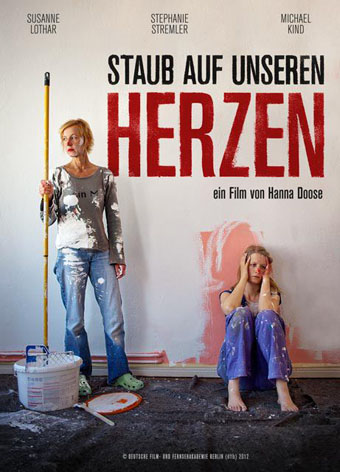Terry Gilliam’s back. As we noted last week, with his on-again, off-again Don Quixote project off again, he’s put together a new project which he’ll begin shooting in Bucharest on October 22, The Zero Theorem. In an interview with Phil Stubbs, editor of the Gilliam fan site Dreams, the director seems both relieved and nervous to have his first feature since 2009’s The Imaginarium of Doctor Parnassus 100% greenlit—which only happened once Christoph Waltz came on board to play Qohen Leth, whom Deadline‘s Mike Fleming describes as “an eccentric and reclusive computer genius plagued with existential angst who works on a mysterious project aimed at discovering the purpose of existence—or the lack thereof—once and for all.” Gilliam tells Stubbs about using Google Earth for location scouting, directing opera, and a bit more: “A year ago I was talking to Tom Stoppard about what we would do with Brazil now, and neither of us could work out how we’d deal with the way the world works now. But this one is giving me a bit of room to come up with part of what I’m critical about in the world, so I’ll make the most of that.”
In other news. Another surprise screening of The Master is happening tonight in San Francisco. Like last week’s presentation in Chicago, the Castro Theatre will be presenting Paul Thomas Anderson’s new film in 70mm and proceeds will go to Martin Scorsese’s Film Foundation.
It’s a “magnificently unsettling” piece of work, according to David Ansen, who has a fine long backgrounder in Newsweek. Joaquin Phoenix, he writes, “is phenomenal, and scary as hell…. This is the role he’ll be remembered for.” Philip Seymour Hoffman, “a brilliant shape-shifter who’s been in every Anderson movie but one, is working in an entirely different style, and it’s thrilling to watch them play off each other.” And as for PTA, “his movies have become fiercer, and more formally and emotionally challenging. The Master is a slap in the face of the screenwriting rulebook that insists on a clear three-act structure, tidy resolutions, and characters whose ‘arcs’ make a neat trajectory from A to C. He likes, he says more than once, to keep things ‘liquidy,’ and there are scenes, like one in the balcony of a movie theater, that blur the line between reality and dream. Like Jonny Greenwood’s gorgeously dissonant score, the movie keeps you off balance and on edge. The spell it casts is both passionate and cool, like a fever dream from which any trace of sentimentality has been expunged.”
The Venice Film Festival has announced that you can now reserve “seats” in its virtual theater, where ten features and 13 shorts from the Orizzonti section may be viewed on the very day that they premiere on the Lido. And then there’s this from the Guardian‘s Ben Child: “An Italian news bulletin on a network owned by disgraced former prime minister Silvio Berluconi has chided the Venice film festival for putting on its raciest lineup in many years.”
Germany’s annual First Steps Awards are presented, as the name implies, to young and promising filmmakers. Last night, the award for a first feature went to Hanna Doose’s Staub auf unseren Herzen (Dust on Our Hearts), in which Susanne Lothar, who died last month at just 51, delivers her last performance. You can watch the subtitled trailer at the site.
Reading. Gwendolyn Audrey Foster in Film International: “Television, popular culture, film; all are permeated with human-centered narratives of end times. There is a growth industry in images of total annihilation and destruction. We are indeed an unusual species, a species endlessly enraptured by narratives of our own demise.”
Reverse Shot carries on posting entries in its Take Four symposium. Julien Allen: “Le Havre may well be, like the majority of film-nut [Aki] Kaurismäki’s work, a comically deadpan treatment of a particular type of cinema (having previously essayed road movies, rockumentaries, and film noir, this time he takes on the golden age of French cinema), but there is nothing glib or flippant about his formal decision-making. This is particularly the case in Le Havre when it comes to color.” And Chris Wisniewski considers Wim Wenders’s use of color and black and white in Wings of Desire (1987).
In the works. Todd Phillips, currently prepping The Hangover Part III, ready or not, is “in talks” to take over The Gambler, a remake of the 1974 film starring James Caan. Tatiana Siegel and Borys Kit in the Hollywood Reporter: “The project once had Martin Scorsese attached to helm. Scorsese’s The Departed scribe William Monahan wrote the screenplay, which centers on a UCLA literature professor with a gambling problem who runs afoul of gangsters.”
For Filmmaker, Byron Camacho checks in on four independent projects currently in production.
For news and tips throughout the day every day, follow @KeyframeDaily on Twitter and/or the RSS feed. Get Keyframe Daily in your inbox by signing in at fandor.com/daily.




